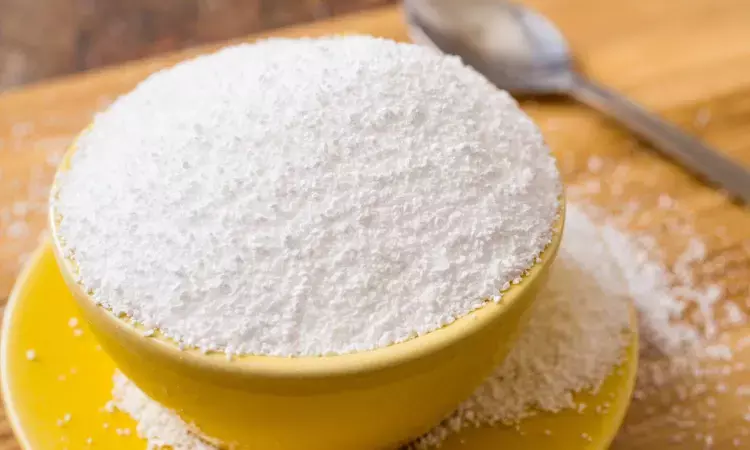- Home
- Medical news & Guidelines
- Anesthesiology
- Cardiology and CTVS
- Critical Care
- Dentistry
- Dermatology
- Diabetes and Endocrinology
- ENT
- Gastroenterology
- Medicine
- Nephrology
- Neurology
- Obstretics-Gynaecology
- Oncology
- Ophthalmology
- Orthopaedics
- Pediatrics-Neonatology
- Psychiatry
- Pulmonology
- Radiology
- Surgery
- Urology
- Laboratory Medicine
- Diet
- Nursing
- Paramedical
- Physiotherapy
- Health news
- Fact Check
- Bone Health Fact Check
- Brain Health Fact Check
- Cancer Related Fact Check
- Child Care Fact Check
- Dental and oral health fact check
- Diabetes and metabolic health fact check
- Diet and Nutrition Fact Check
- Eye and ENT Care Fact Check
- Fitness fact check
- Gut health fact check
- Heart health fact check
- Kidney health fact check
- Medical education fact check
- Men's health fact check
- Respiratory fact check
- Skin and hair care fact check
- Vaccine and Immunization fact check
- Women's health fact check
- AYUSH
- State News
- Andaman and Nicobar Islands
- Andhra Pradesh
- Arunachal Pradesh
- Assam
- Bihar
- Chandigarh
- Chattisgarh
- Dadra and Nagar Haveli
- Daman and Diu
- Delhi
- Goa
- Gujarat
- Haryana
- Himachal Pradesh
- Jammu & Kashmir
- Jharkhand
- Karnataka
- Kerala
- Ladakh
- Lakshadweep
- Madhya Pradesh
- Maharashtra
- Manipur
- Meghalaya
- Mizoram
- Nagaland
- Odisha
- Puducherry
- Punjab
- Rajasthan
- Sikkim
- Tamil Nadu
- Telangana
- Tripura
- Uttar Pradesh
- Uttrakhand
- West Bengal
- Medical Education
- Industry
Popular artificial sweetener linked to heart attack and stroke

USA: A recent study published in Nature Medicine has shown that a popular artificial sweetener, erythritol, may up the risk of stroke and heart attack.
A study of over 4,000 people in the U.S. and Europe found that erythritol is associated with incident MACE (major adverse cardiac events) risk and fosters enhanced thrombosis. MACE includes stroke, heart attack or death.
The researchers also examined the effects of adding erythritol to either whole blood or isolated platelets, which are cell fragments that clump together to stop bleeding and contribute to blood clots. Results revealed that erythritol made platelets easier to activate and form a clot. Pre-clinical studies confirmed ingestion of erythritol heightened clot formation.
“Sweeteners like erythritol have rapidly increased in popularity in recent years, but there needs to be more in-depth research into their long-term effects,” said senior author Stanley Hazen, M.D., Ph.D., chairman for the Department of Cardiovascular & Metabolic Sciences in Lerner Research Institute and co-section head of Preventive Cardiology at Cleveland Clinic. “Cardiovascular disease builds over time, and heart disease is the leading cause of death globally. We need to ensure our food isn’t hidden, contributors.”
Artificial sweeteners, such as erythritol, are common replacements for table sugar in low-calorie, low-carbohydrate and “keto” products. Sugar-free products containing erythritol are often recommended for people who have obesity, diabetes or metabolic syndrome and are looking for options to help manage their sugar or calorie intake. People with these conditions also are at higher risk for adverse cardiovascular events like heart attack and stroke.
Erythritol is about 70% as sweet as sugar and is produced through fermenting corn. After ingestion, erythritol is poorly metabolized by the body. Instead, it goes into the bloodstream and leaves the body mainly through urine. The human body creates low amounts of erythritol naturally, so any additional consumption can accumulate.
Measuring artificial sweeteners is difficult and labeling requirements are minimal, and often do not list individual compounds. Erythritol is “Generally Recognized As Safe (GRAS)” by the FDA, which means there is no requirement for long-term safety studies.
The authors note the importance of follow-up studies to confirm their findings in the general population. The study had several limitations, including that clinical observation studies demonstrate association and not causation.
“Our study shows that when participants consumed an artificially sweetened beverage with an amount of erythritol found in many processed foods, markedly elevated levels in the blood are observed for days well above those observed to enhance clotting risks,” said Dr. Hazen. “Further safety studies must be conducted to examine the long-term effects of artificial sweeteners in general, and erythritol specifically, on heart attack and stroke risks, particularly in people at higher risk for cardiovascular disease.”
Authors recommend talking to your doctor or a certified dietician to learn more about healthy food choices and for personalized recommendations.
Reference:
Witkowski, M., Nemet, I., Alamri, H. et al. The artificial sweetener erythritol and cardiovascular event risk. Nat Med (2023). https://doi.org/10.1038/s41591-023-02223-9
Dr Kamal Kant Kohli-MBBS, DTCD- a chest specialist with more than 30 years of practice and a flair for writing clinical articles, Dr Kamal Kant Kohli joined Medical Dialogues as a Chief Editor of Medical News. Besides writing articles, as an editor, he proofreads and verifies all the medical content published on Medical Dialogues including those coming from journals, studies,medical conferences,guidelines etc. Email: drkohli@medicaldialogues.in. Contact no. 011-43720751


